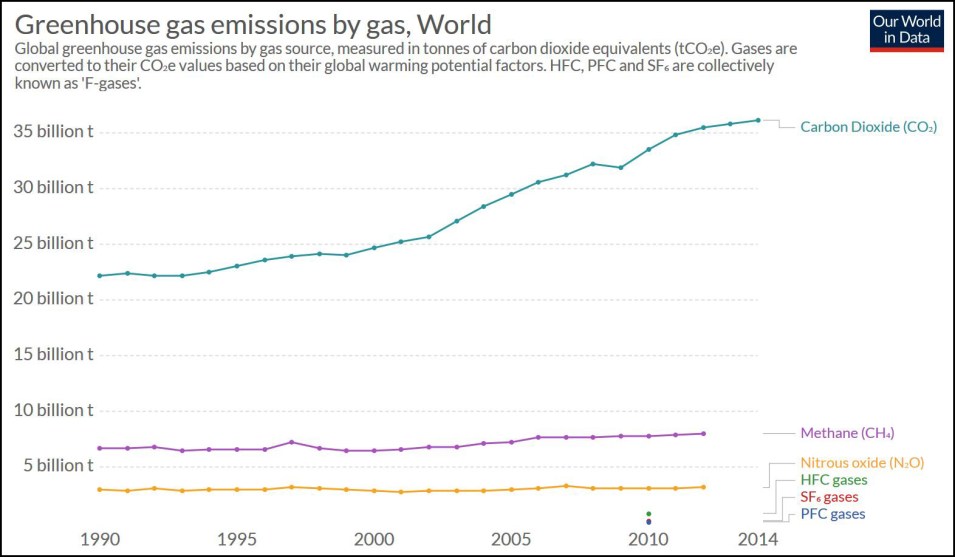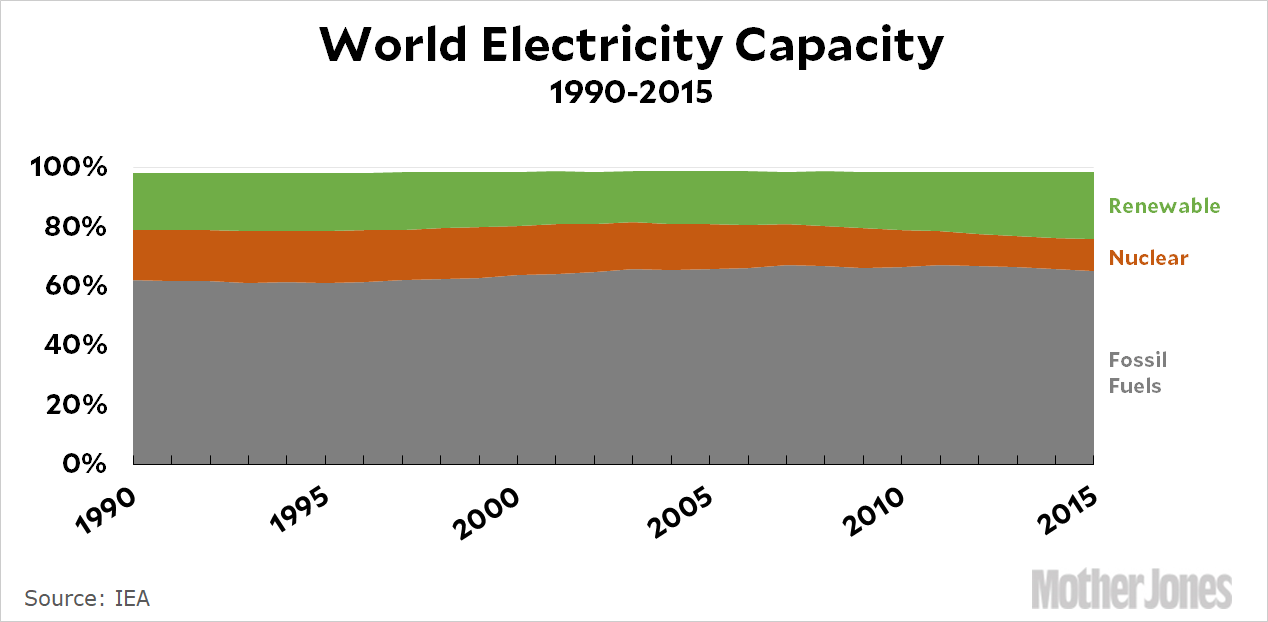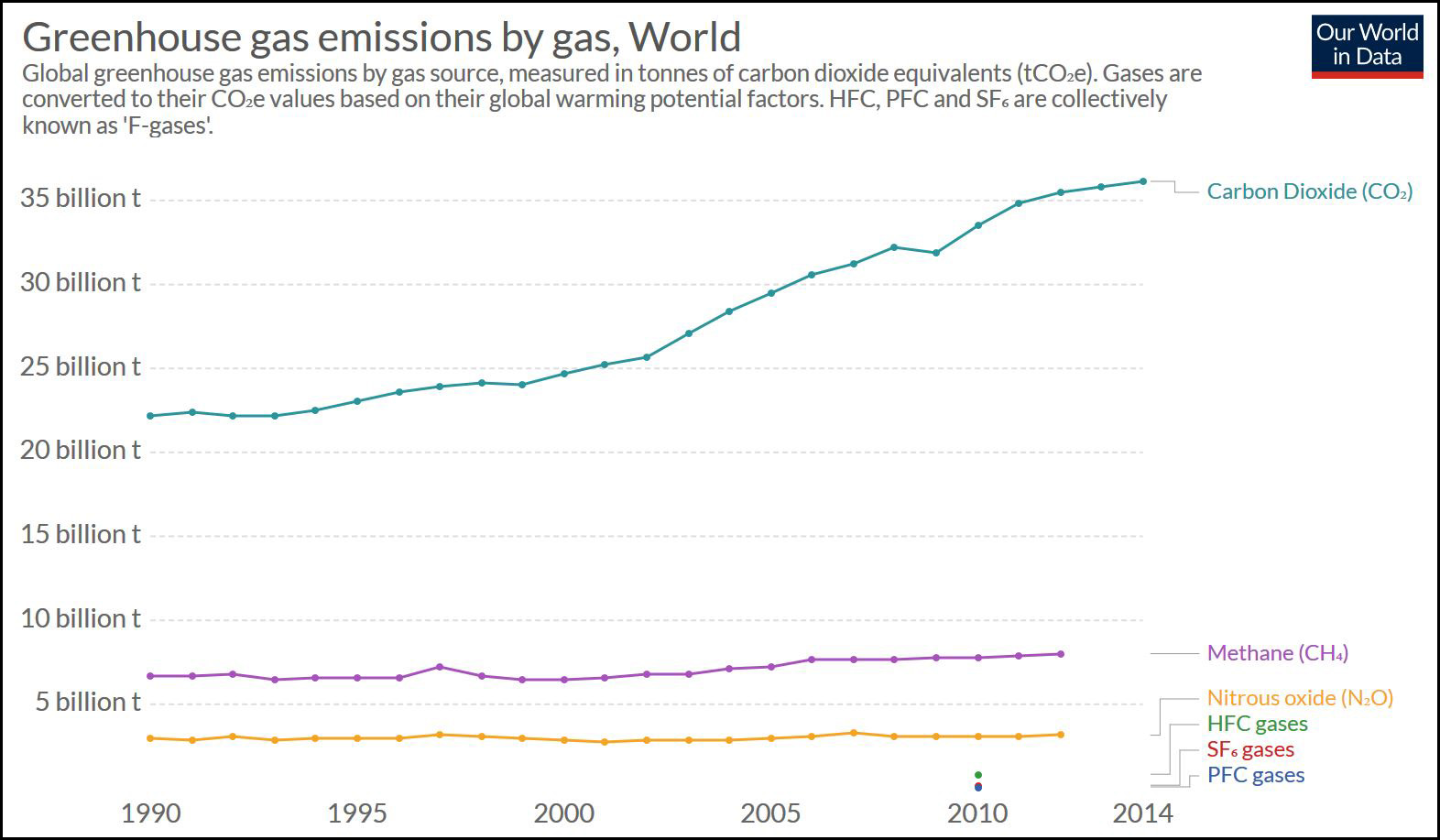
Jonathan Franzen has pissed off a lot of people by writing in the New Yorker that we should just admit the obvious: we’ve lost the war on climate change. He says that the conditions for success are simply unacceptable for most people:
The first condition is that every one of the world’s major polluting countries institute draconian conservation measures, shut down much of its energy and transportation infrastructure, and completely retool its economy….The actions taken by these countries must also be the right ones. Vast sums of government money must be spent without wasting it and without lining the wrong pockets….Finally, overwhelming numbers of human beings, including millions of government-hating Americans, need to accept high taxes and severe curtailment of their familiar life styles without revolting.
….Call me a pessimist or call me a humanist, but I don’t see human nature fundamentally changing anytime soon. I can run ten thousand scenarios through my model, and in not one of them do I see the two-degree target being met.
Franzen goes overboard in his piece, but that’s a time-honored way of getting attention. And he does have a point. Here is worldwide electricity capacity since 1990, when climate change first became a serious topic of conversation:

The good news is that use of renewable energy has increased, from 19 percent of total capacity to 22 percent. That’s genuine progress, and the use of solar and wind continues to accelerate.
The bad news is that this doesn’t even make up for the loss of nuclear power over the same period, let alone cut our dependence on fossil fuels. All told, our reliance on fossil fuels has increased from 62 percent to 65 percent. Here are the results:

We haven’t even managed to stabilize carbon emissions, let alone reduce them. Even a huge global recession made only a tiny dent.
Franzen’s prescription is wrong: we shouldn’t give up hope. Success is still possible, even if it’s hardly certain. However, his assessment of human nature is something to be taken seriously and it should illuminate the way we approach climate change. Working with human nature is far more likely to produce results than fighting it, and that means finding new ways to make green energy cheap and plentiful instead of fruitlessly pleading with people to use less of it.
In the meantime, it makes a lot of sense to also put a lot of work into growing our use of wind and solar, two technologies we have already. It’s not enough, but it will reduce the amount we have to do when we finally do come up with real solutions. That’s well worth it.















